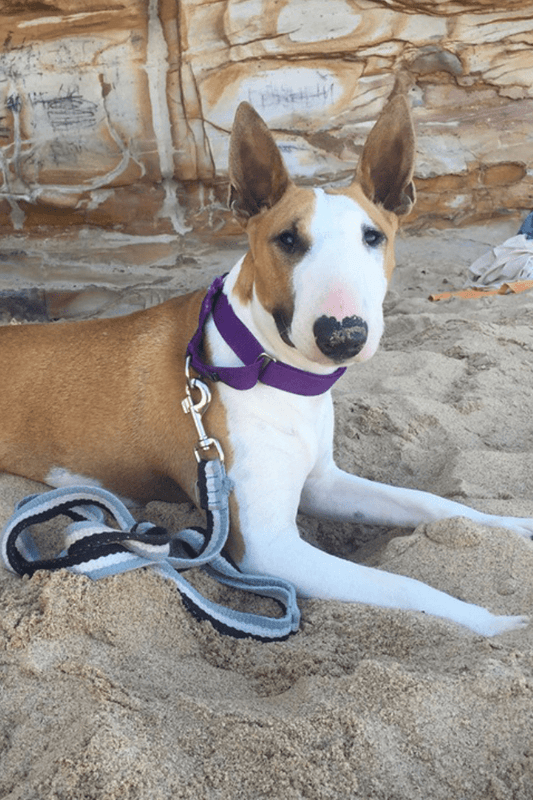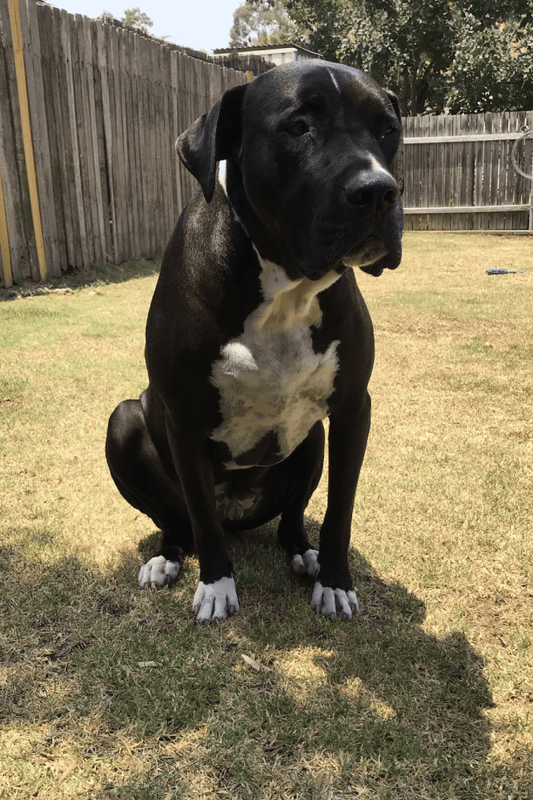How You’re Affected by a Traumatic Event With Your Dog
I sat in my car, pulled over to the side of the road, struggling to catch my breath, tears rolling down my face and feeling this insane feeling of being lost.
This was exactly one week after my dog Yogi was bitten by one of Australia’s most dangerous snakes; an Eastern Brown. It was the first time since Yogi’s bite that we had been in the car together, alone and I was taking Yogi to have her one-week post incident check-up, she was doing incredibly well. After trying to convince myself that I was ‘okay’ after Yogi’s bite, it was this car ride that showed me I wasn’t, and I needed to seek help.

My experience with Yogi being bitten by a snake was not something I wish upon my worst enemies. Even having experienced some pretty adrenalin dumping and tragic experiences whilst serving as a Queensland Police Officer, nothing prepared me for the toll this experience took on both my mind and body.
Experiencing trauma is something a lot of pet parents unfortunately have to do, whether it involves a near death experience, a disease, a fatal accident, a dog fight, etc. A traumatic experience can have a different meaning to each different person. Whilst it may seem ‘silly’ that you feel like an experience has really ‘rocked’ you, trauma presents in different forms and it is so important to deal with this appropriately.
Traumatic experiences can affect a person both emotionally and physically following days and weeks following the event. A person may experience high levels of emotional, psychological, and physical distress that temporarily disrupts their ability to function normally in day-to-day life.
According to Better Health Victoria, common reactions to trauma are:
- Feeling as if you are in a state of ‘high alert’ and are ‘on watch’ for anything else that might happen
- Feeling emotionally numb, as if in a state of ‘shock’
- Becoming emotional and upset
- Feeling extremely fatigued and tired
- Feeling very stressed and/or anxious
- Being very protective of others including family and friends (in this case other pets)
- Not wanting to leave a particular place for fear of ‘what might happen’ (1)
Many pet parents find themselves trying to dismiss these feelings as the thought of experiencing ‘trauma’ when it comes to an animal, may seem trivial or dramatic.
However, as I experienced following Yogi’s incident, my trauma was real and I needed to acknowledge it.

Beyond Blue details what you should consider following a traumatic event and what may be helpful with dealing with your physical and emotional reactions:
- Understand that it’s normal to have strong reactions to a traumatic event. Give yourself some time to recover.
- Express how you feel by talking to someone, writing about it or finding a creative outlet to share your reactions.
- Avoid using drugs or alcohol to cope. They will not help you feel better over time.
- Gradually confront what has happened rather than trying to block it out. Thinking about what has happened can be helpful as you begin to process your experiences. If you begin to dwell on it consider putting some time aside to think about it and then move on to something else.
- Try to maintain your normal routine.
- Look after yourself physically; maintain a healthy diet, get regular exercise and ensure you have enough sleep.
- Talk to your family and friends about what help you need.
- Teach yourself how to relax using techniques such as yoga, breathing or meditation, or do things you enjoy, such as listening to music or gardening.
These normal reactions to trauma gradually settle down over time with the help of family and friends. (2)
A really huge step for me was reaching out to my friends and husband and explaining how I felt about the situation. Just communicating how I felt instantly lifted an invisible load off my shoulders. I also found researching and writing about my experience has also assisted with the healing process.
I still have brief moments when something will trigger feelings of anxiety, for example if Yogi is bitten by an ant and holds her foot in the same way she did with the snake. Or if any of my dogs go to the particular area of my yard that she was bitten. However, each time I feel like this, I acknowledge how I am feeling and know that it is okay to feel like this.
If you do experience trauma or you are currently experiencing it, don’t be afraid to seek professional help. There are a range of community services available:
- Beyond Blue: 1300 22 4636
- Lifeline: 13 11 14
- Pets and People: 1300 431 450
Never be ashamed to reach out for support to fellow pet parents. We all understand the love we have for our pets and how anything that happens to them affects us.
References
- https://www.betterhealth.vic.gov.au/health/conditionsandtreatments/trauma-reaction-and-recovery
- https://www.beyondblue.org.au/the-facts/trauma










